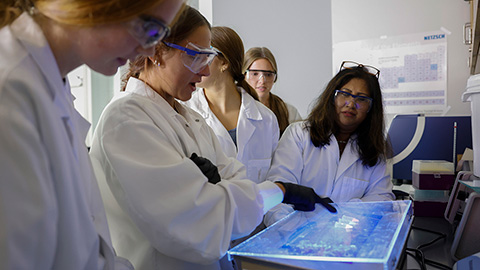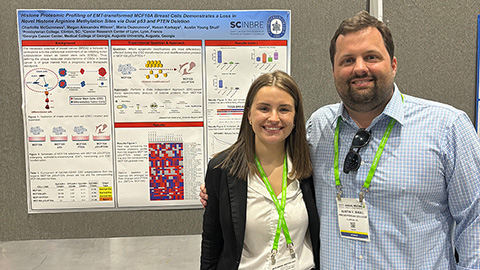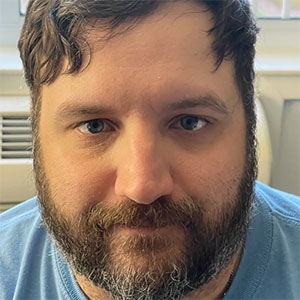Love and biochemistry
I met my first love when I was 18 years old in the spring of 2002. We both attended Framingham High School in Massachusetts and met through mutual friends. Our interaction developed into something more significant over that summer. I was preparing to leave for college at the University of Maine in Orono; she had finished her junior year in high school. We decided to attempt a long-distance relationship after dating through the summer. The first year apart passed by without difficulty. Our feelings for each other continued to grow despite the geographical gap. She finished her senior year and decided to take a break before college. She eventually joined me at the University of Maine after another year or so. I figured we were completely committed and, therefore, set for life.
Divergent paths
My first love and I had different majors in college. Mine was biochemistry and hers was visual art. Our different curricula entailed distinct assignments and separate schedules. Biochemistry majors were consumed with regimented classes, endless testing and abundant laboratory work. I remember spending nearly all my time studying and experimenting. My agenda was maintaining a perfect 4.0 grade point average, soaking up research experiences and getting into a premier Ph.D. program. I did not have time for extracurricular activities, clubs or social events because of my workload. Little time was left for my first love. The dangerous distance this created began to seal us off from each other, and we gradually forgot the feelings we once had. The relationship became an entrenched formality.
Crumbled world
My first love and I dated all through my college years, even getting engaged in January 2006. I was accepted into the biological and biomedical sciences program at Harvard Medical School in my last semester of senior year. She transferred to the Massachusetts College of Art and Design so that we could be together in Boston after marriage. There was, however, no genuine kindness or affection between us at that point. She met another young man in one of her classes. As we grew apart, they grew closer. He gave her the attention I had forgotten how to provide. I was taking her and our relationship for granted. She left me for him at the close of the school year, after four years of struggling to keep the relationship alive.
I mentally collapsed into hysteria. Our engagement, my life, was destroyed, and I was unsure whom to blame. It felt like the world had flipped upside down, and my emotions rapidly shifted between anger, despair and resignation. I had nothing but questions running frantically through my mind. Was it my fault? How could she do this to me? Should I try to get her back, find someone else or stay single? Each day slipped into the next, and I kept in constant motion by running a lot and visiting people. I was trying all the while to avoid thinking about what they could be doing together at that moment. A part of me died in the sudden rupture between my first love and me. Thankfully, I had no professional obligations that summer, and my strong connections to family, friends and faith buffered the agony. I survived one grueling day at a time and entered Harvard in September 2006.
The lesson
I have had ample time to reflect in the 10 years since my first love left. I learned that work–life balance is crucial to success in the personal and professional spheres. Life-science researchers often work long hours to obtain desired results, write grants or papers or prepare presentations. I can attest that it is easy to forget the world outside the laboratory when you are in a groove or a bind. I’ve discovered that this forgetfulness, however, hampers my objectivity and disconnects me from my relationships. I’ve found that it is important periodically to step back and take a break. Preserving my sanity is necessary for me to do good science. The people around me are the anchor I need. My present objective is to maintain balance in my personal and professional life so that I can enjoy fully both love and science.
Enjoy reading ASBMB Today?
Become a member to receive the print edition four times a year and the digital edition monthly.
Learn moreGet the latest from ASBMB Today
Enter your email address, and we’ll send you a weekly email with recent articles, interviews and more.
Latest in Opinions
Opinions highlights or most popular articles

The tortoise wins: How slowing down saved my Ph.D.
Graduate student Amy Bounds reflects on how slowing down in the lab not only improved her relationship with work but also made her a more productive scientist.

How pediatric cataracts shaped my scientific journey
Undergraduate student Grace Jones shares how she transformed her childhood cataract diagnosis into a scientific purpose. She explores how biochemistry can bring a clearer vision to others, and how personal history can shape discovery.

Debugging my code and teaching with ChatGPT
AI tools like ChatGPT have changed the way an assistant professor teaches and does research. But, he asserts that real growth still comes from struggle, and educators must help students use AI wisely — as scaffolds, not shortcuts.

AI in the lab: The power of smarter questions
An assistant professor discusses AI's evolution from a buzzword to a trusted research partner. It helps streamline reviews, troubleshoot code, save time and spark ideas, but its success relies on combining AI with expertise and critical thinking.

How AlphaFold transformed my classroom into a research lab
A high school science teacher reflects on how AI-integrated technologies help her students ponder realistic research questions with hands-on learning.

Writing with AI turns chaos into clarity
Associate professor shares how generative AI, used as a creative whiteboard, helps scientists refine ideas, structure complexity and sharpen clarity — transforming the messy process of discovery into compelling science writing.

